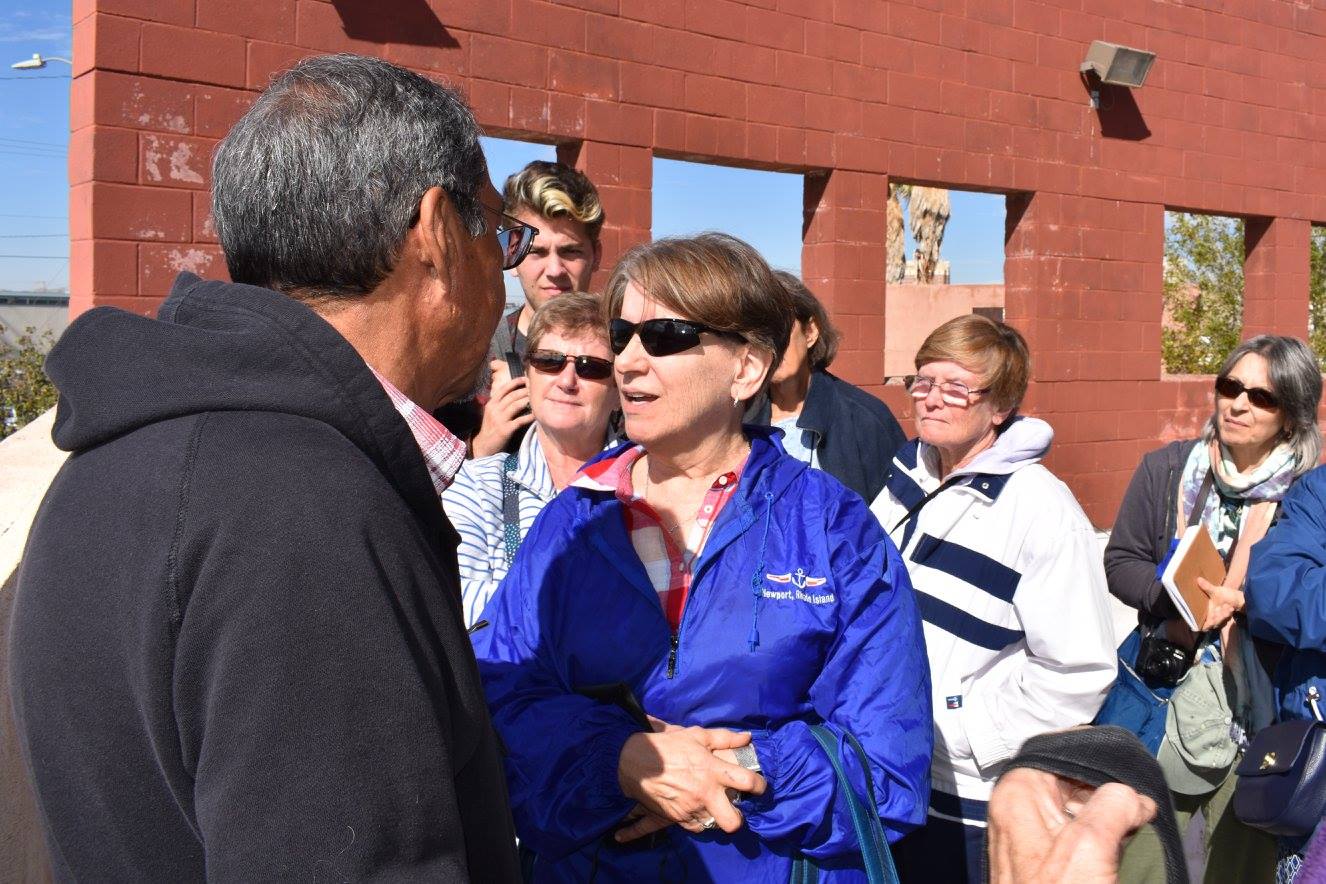Encuentro: Reflecting on Border Immersion Experience, part 1
share
From November 6-10, the Sisters of Mercy sponsored the second annual Border Immersion Experience, an event at the U.S.-Mexico border where participants witnessed some of the conditions experienced by immigrants on the southern border. We’ll be sharing their reflections in two parts. Today we hear from Sister Eileen Trainor and Sister Rita Valade.
Why? by Sister Eileen Trainor
A father and son were riding in a bus. The young boy looked out the window and asked his father: “Why do they have so much, and we have so little?” They were in Juarez, Mexico, riding along the border of El Paso, Texas. Why?
For many years I have worked with people who are materially poor in a soup kitchen, shelter for homeless, center for immigrants and agency assisting formerly incarcerated women and their children. After meeting so many people on a personal level, my mind and soul say, “Why?” What is causing this poverty to be a reality? The connection between direct service and systemic injustice runs long and deep.
I am grateful that my trip to and across the border again awakened these questions in me. Why would a man or woman, a mother or a father, leave their homeland, all whom and what they know, to venture into a strange land? What desperate and/or dangerous conditions persist in their own land to propel them to leave? And more importantly, what is causing those horrendous conditions to exist? What is the root of the problem?
My belief is that people in the United States are now seeing the result of past and present injustices. When our companies and those of other industrialized nations went to Mexico and Central American countries, they exploited workers with desperately low wages and ravaged natural resources—all while U.S. citizens were gaining huge profits. It is not surprising that the workers and their families live in horrendous poverty. When these same corporations bribe and influence Latin American officials to the corporations’ advantage, it is only inevitable that over time this injustice will come back to plague the United States.
Profits over persons will result in many persons living in poor and violent places; it is only natural for people to want a better life for themselves and their children. Rather than putting up walls, we should be opening doors to those who have the hope and courage to pursue a better life.
Why Take the Time to Participate? by Sister Rita Valade

For the last few years I have moved into ministries that do not have much direct contact with persons most affected by the injustices of our world. I have been involved in grant writing, website design, strategic planning for small nonprofits and other administrative roles. But as a lifelong social worker, I realized my soul felt a bit empty.
When I heard about the immersion experience, I knew that the experience would be helpful in reconnecting me with our suffering world—people who are so fearful of remaining in their home country, that they would risk coming to the United States without documents.
In Juarez, Mexico, on the border wall begun by President George W. Bush, someone wrote: “We are not illegal or delinquents. We are international workers.” That is the plight of so many persons, seeking employment and a way to provide for their families. Persons apply for sanctuary from harsh and corrupt governments, but there has been a marked decrease in allowing persons south of the U.S. border to receive any legal documentation. There is a lowered quota for how many people from Latin America are allowed access into the United States. That is racism.
NAFTA has brought employment through huge, multinational industrial complexes, but the salaries are unjust. Persons work 50 hours a week and receive the equivalent of $50 USD. Rent in a Juarez hovel averages $150/month.
Meanwhile, the United States has a mandate to keep all 34,000 detention center beds full all the time. The detention centers are run by for-profit companies. There is no incentive to reduce the number, even when approximately two-thirds of the people detained have no criminal record. Men, women and children are detained for years with no right to process. Learning this has moved me to write to Congress regarding this mandate.
This trip changed me. I met so many heroic people: caregivers, teachers, religious women and men who daily, step by step, are trying to address the needs of the people who suffer from pandemic hardship, poverty, and violence. I am grateful to the organizers of this event, to my companions on the journey and to my community of sisters for supporting my participation.
Are you ready for your own encuentro? Mercy is planning additional immersion experiences at the border. If you think you might be interested, please contact justice@sistersofmercy.org.